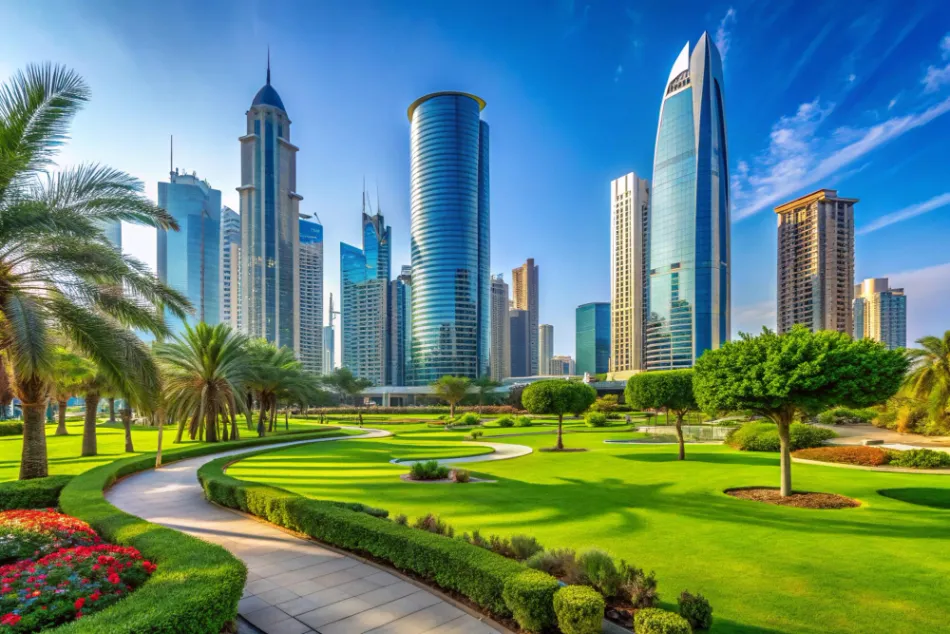
UAE pioneers sustainable future through climate-sensitive policies
The United Arab Emirates (UAE) stands as a prominent example of how climate-sensitive policy can shape a nation’s approach to environmental sustainability. As a country characterized by its arid climate and heavy reliance on fossil fuels, the UAE faces unique challenges and opportunities in addressing climate change. Its climate-sensitive policy initiatives reflect a commitment to balancing economic growth with environmental stewardship, demonstrating a forward-thinking approach to sustainability.
One of the most significant climate-sensitive policies in the UAE is its National Climate Change Plan, which aligns with the goals of the Paris Agreement on climate change mitigation and adaptation. The UAE’s commitment to reducing greenhouse gas emissions and enhancing climate resilience is articulated through its Nationally Determined Contributions (NDCs). According to the UAE’s updated NDCs in 2023, the country aims to reduce its greenhouse gas emissions by 23.5% by 2030, relative to a business-as-usual scenario. This ambitious target reflects the UAE’s recognition of the need to transition towards a low-carbon economy.
A pivotal component of the UAE’s climate strategy is its investment in renewable energy. The UAE has been a leader in this domain, exemplified by the development of the Mohammed bin Rashid Al Maktoum Solar Park. This project is one of the world’s largest solar parks and aims to produce 5,000 megawatts (MW) of solar energy by 2030. By diversifying its energy sources, the UAE not only reduces its reliance on fossil fuels but also contributes to global efforts to mitigate climate change.
In addition to renewable energy investments, the UAE has undertaken significant initiatives to promote energy efficiency and sustainable urban development. The UAE Vision 2021 outlines a strategic framework for achieving sustainable development, which includes enhancing the efficiency of energy consumption in buildings and promoting green technologies. The establishment of the Estidama Pearl Rating System in Abu Dhabi is an example of such policies, aiming to ensure that new buildings adhere to stringent sustainability standards and incorporate energy-efficient practices.
Another critical aspect of climate-sensitive policy in the UAE is its focus on water resource management. Given the arid conditions and limited freshwater resources, the UAE has implemented policies to enhance water conservation and efficiency. The UAE’s National Water Resources Strategy 2036 outlines measures to improve water use efficiency and ensure sustainable water supply through technological innovations and regulatory frameworks. This strategy includes the promotion of desalination technologies and the development of advanced irrigation systems for agriculture.
Moreover, the UAE’s approach to climate-sensitive policy is evident in its engagement with international climate initiatives. The UAE hosted the 2023 United Nations Climate Change Conference or Conference of the Parties of the UNFCCC (United Nations Framework Convention on Climate Change), globally known as the COP28, and has been an active participant in global climate dialogues. This engagement underscores the UAE’s commitment to contributing to global climate action and enhancing international cooperation.
In conclusion, the UAE’s climate-sensitive policies illustrate a proactive and innovative approach to addressing climate change. Through ambitious emission reduction targets, investments in renewable energy, promotion of energy efficiency, and sustainable water management, the UAE is setting a benchmark for how nations with significant environmental challenges can transition towards a more sustainable and resilient future. As the UAE continues to navigate the complexities of climate change, its policies will likely serve as a model for other countries striving to balance economic development with environmental responsibility.




